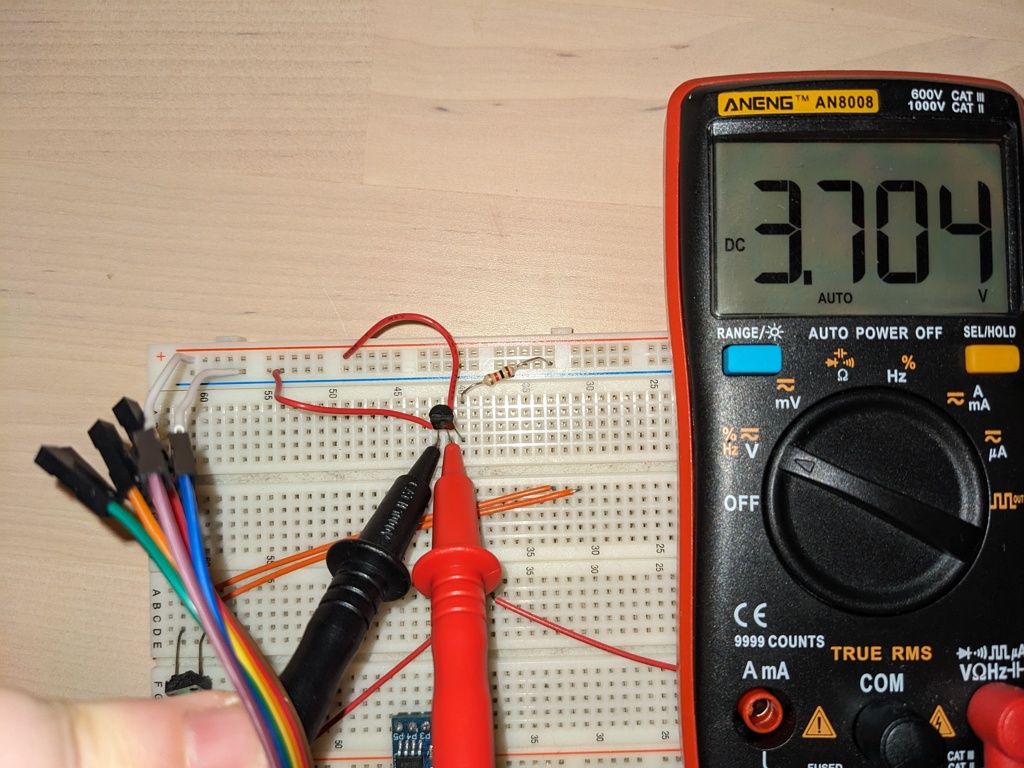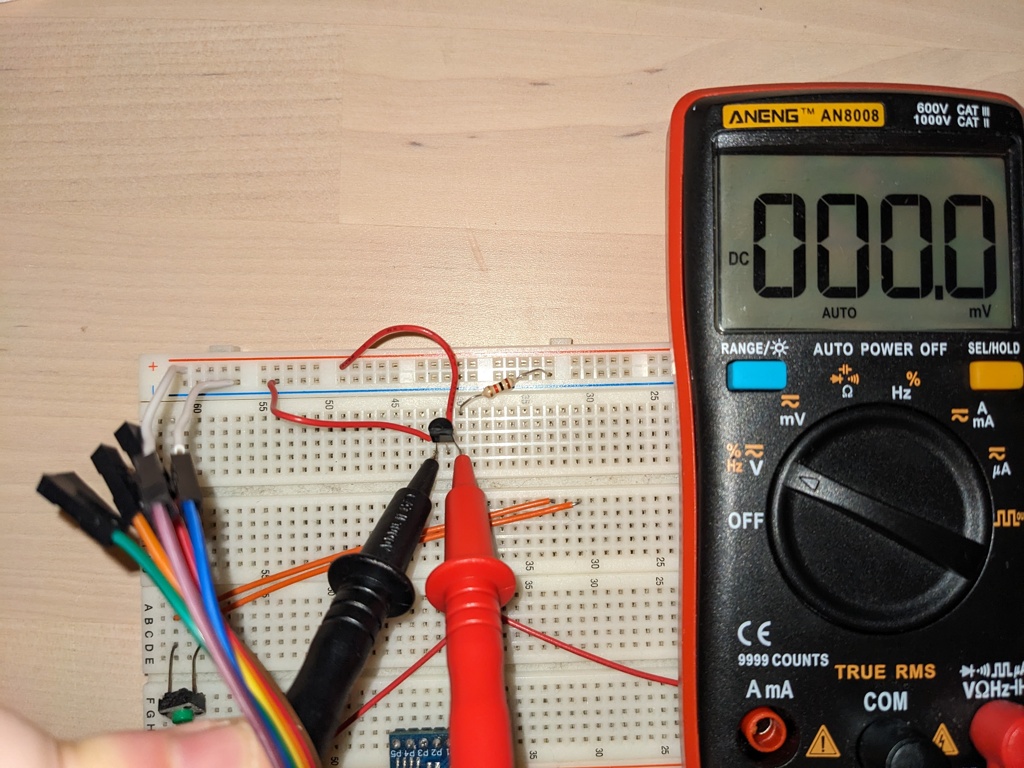I’m trying to build a esp8266 weather station and got some MCP1700-3302E to power the esp8266 from a lipo. But when I connect the lipo to the MCP1700 (looking at it flat spot at the front, ground left, Vin in the middle and Vout on the right) I get no output at Vout. I googled and could not find anything. I tested 5 different ones and it’s the same for all of them. Could I just have a batch of broken ones? Edit: attached a picture of my very simple test setup Edit 2: I just connected three lipo directly to Vin, that seems to work without any problems (at least for a few days now)

The “typical application circuits” on page 2 in the datasheet https://ww1.microchip.com/downloads/en/DeviceDoc/MCP1700-Data-Sheet-20001826F.pdf shows both input and output being decoupled with a 1µF cap, have you tried that? I haven’t worked with the MCP1700, but I have had other LDOs fry themselves because the decoupling malfunctioned.
I initially tried with those capacitors but decided to also try without them - perhaps you’re right and I broke my LDOs by doing that :/
I’m not saying that your LDOs are fried. What I am saying is that some LDOs don’t take too kindly on not having the company of some nice caps.
What just caught my eye is that the datasheet specifies ceramic non-polar caps. That seems a bit weird. Just drawing a non-polar would have made sense, but specifying that it is a ceramic is strange. Using a ceramic makes sense, I mean there are 5 times the ceramic 1uF caps on digikey than there are electrolytics, but it should be technologically agnostic… I’d probably try to get some 1uF ceramics for testing.
Here’s something I’ve been using in my own esp8266 projects for a while, LiFePo4 18650 cells. Their working voltage range, 2.6 - 3.6, 3.2v typical, makes them perfect for esp chips, and you remove the quiescent drain (though really low for mcp1700). Downsides of LFP being, lower capacity in the same size (energy density), pouch cells are generally not available and LiIon is a far more mature tech, with easy (and cheap tp/tc 4056) charging solutions.
Unlikely. Have you measured the voltage present at Vin?
Yes, I measured across ground and Vin and it shows ~4V. Across ground and Vout 0V.
Just to be sure: positive probe on Vin, negative probe on GND, measurement shows no minus sign?
Yes, that’s what I did and what it shows. I also attached a picture of my test setup just in case I did something wrong there
Huh, that’s weird. Double checking the part markings would’ve been my next suggestion, but the picture shows they’re correct. Maybe try a 1kOhm load resistor across Vout and GND, though in theory you should be able to see the output voltage without it.
I tried with the resistor, same thing, 0V. I made two images showing the measurements



